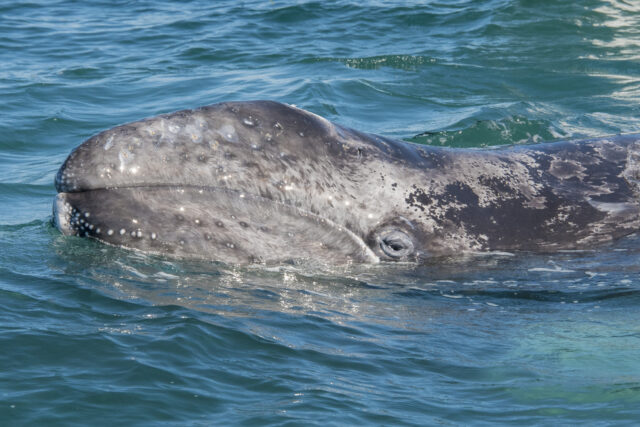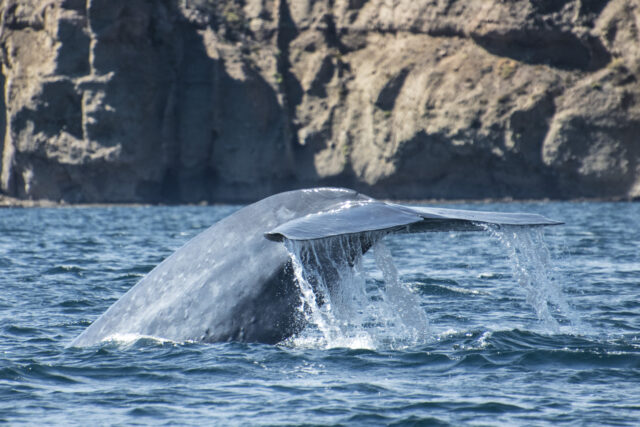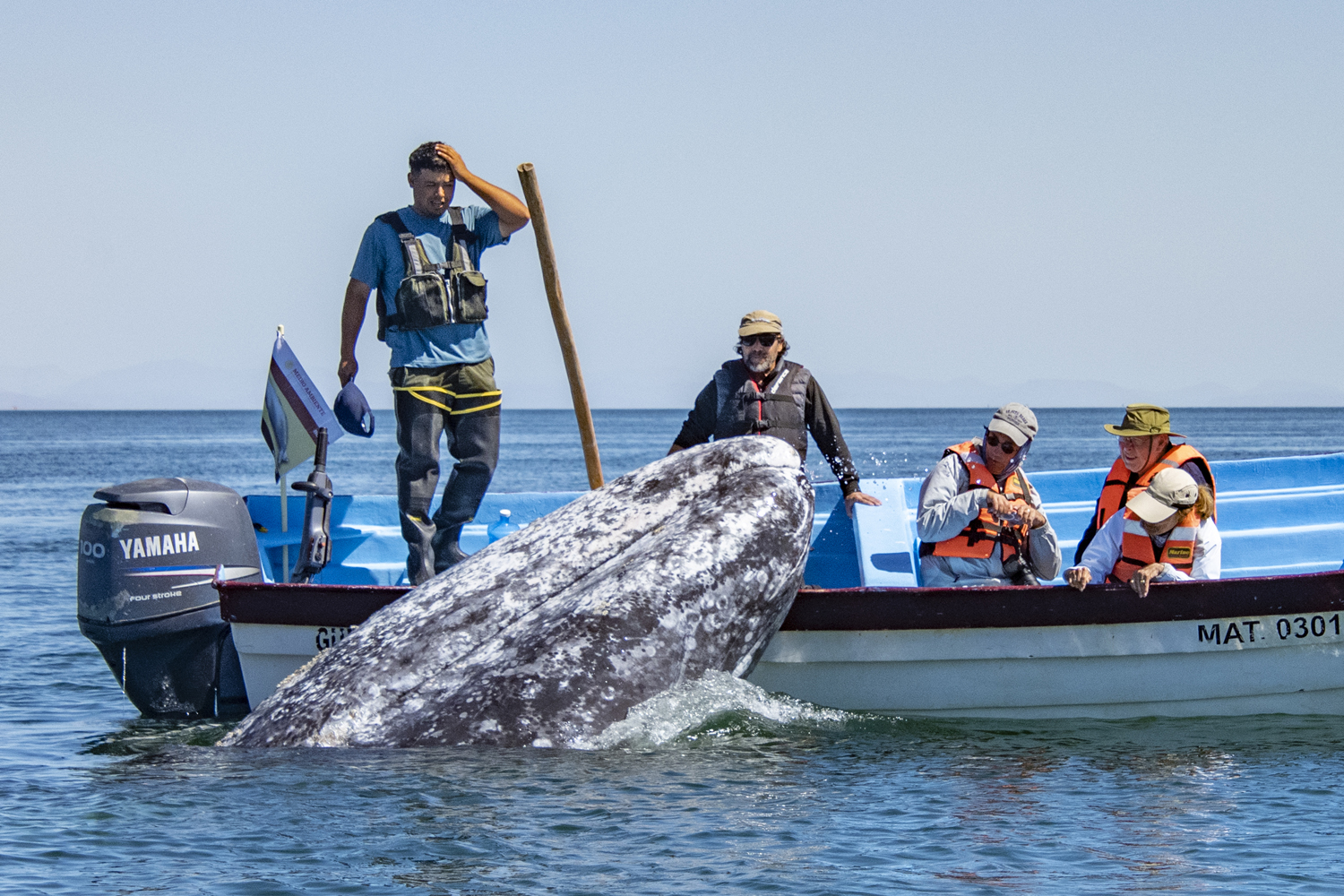4. HEALTH CONSIDERATIONS
Van Os Photo Safaris are within the capabilities of average people in good health. Some of these trips require the capability of walking for several miles over uneven trails, stepping from a small boat to a wave-washed rocky beach, flying in small planes and helicopters, and occasionally hiking at high elevations—all while carrying an assortment of camera equipment. If you have concerns about your own capabilities and/or fitness as it relates to a trip, please inquire with our office before reserving a space. By forwarding a signed Registration Form and trip deposit, you certify that you do not knowingly have any physical or other conditions of disability that would create a risk for you, or other trip participants and you agree to inform our office in writing if changes in your health, including viral illnesses, occur any time prior to the tour. We reserve the right to request a doctor's statement of good health. The company's or trip leader's judgment shall provide the ultimate determination of an individual's ability to embark upon or to continue a trip. Once a trip has been confirmed, medical circumstances will not be considered as exceptions to our cancellation policy. We assume no responsibility for medical care or for special dietary requirements. Participants are asked to refrain from smoking with or near the group.
5. CONTACT SCHEDULE
Participants will receive three emails before the trip departs: 1. Initial Tour Information confirms the deposit and provides pre-departure information. 2. Practical Tour Information provides clothing and photo gear recommendations, climate data, and applicable health advisories. Visa information will also be included (if applicable). 3. Final Tour Information includes arrival instructions, itinerary revisions (if any), hotel addresses, trip telephone contact information and participant list. We provide the trip leader's telephone number(s) and/or email address with final documents so you can inquire about special photographic questions you may have regarding your trip. We welcome your calls or email messages to info@photosafaris.com.
6. PHOTO SAFARI TRIP FEE INCLUSIONS
Information supplied upon enrollment describes the specific details that are included in your trip fee. Generally, these include lodging in double room occupancy, all meals (specified in the itinerary as BLD denoting breakfast, lunch, or dinner), ground transportation during the trip in vans or small buses, internal tour air transportation as specified, meal and baggage tipping, and guide services provided by the trip leaders. Not included are airfare or other transportation from your home to the trip staging location, airport departure taxes, insurance, alcoholic beverages, and bar expenses (plus bottled water and soft drink expenses on international tours outside of North America), tips and gratuities to local guides, phone calls, passport or visa expenses, laundry, or items of a personal nature. Gratuities to Van Os Photo Safaris trip leaders are optional and always appreciated. Rates are based on group tariffs; if the trip does not have sufficient registration, a small party supplement may be charged.
Most of our trips are priced in double occupancy (shared) accommodation. Single accommodation is available for a supplemental cost in many locations; see the pre-departure trip information or call our office for details. You will be charged the single supplement fee if you desire single accommodation or if you wish to have a roommate, but one is not available. In some remote locations, clients with single rooms are infrequently compelled to share a room due to circumstances beyond our control. In such cases, appropriate per diem refunds will be made reflecting the direct cost of the single room at the facility where clients are required to share. There is no additional single supplement fee on ship-based cruises if you request a roommate and one is not available.
Cost increases may occur unexpectedly due to rising costs of airfares, ground transport, fuel surcharges, accommodations, and currency fluctuations, among others. Van Os Photo Safaris, Inc. may be compelled to amend prices, and we reserve the right to do so without prior notice. An increase in trip prices shall not be sufficient grounds for any refund of funds paid for the trip other than as determined by the terms of our cancellation policy.
7. LOGISTICS
Whenever possible, our trip participants are lodged in comfortable, modern hotels. We select among the best available accommodations but refrain from extravagance. Some interesting photographic destinations are far removed from modern amenities, however, and where necessary we will be accommodated in rustic country inns, cabins, or tented camps.
Meals are always a special part of our trips for the camaraderie they engender and the opportunity they provide to try new foods from different areas. Depending on the trip and specific locale, participants order restaurant meals from the full menu or, less frequently, table d'hôte. Some trips include picnic lunches in the field. Fruit juice for breakfast and coffee or tea is included with the meals. Soft drinks are included with meals on tours within North America. Participants are responsible for their own bar tab (including bottled water, soft drinks, as well as alcoholic beverages on tours outside of North America) at restaurant lunches and dinners.
Our itineraries are intended as examples only. Participants should allow for flexibility due to changes in weather, natural history or cultural events, or other logistical arrangements deemed necessary by Van Os Photo Safaris, Inc., or our leaders.
The second tour leader (and any subsequent additional leaders) listed for each trip on the website will be added as the group size warrants. If only one space remains on a trip, and logistics permit, we accept two people traveling together, even if it exceeds the trip maximum.
8. RESPONSIBILITY
Van Os Photo Safaris, Inc. and/or their Agents act only as agents for the passenger (trip participant) in regard to travel including, but not limited to, sightseeing, meals, lodging, transportation, and all other services whether by railroad, motor coach, automobile, van, boat, ship or aircraft or any other conveyance, and they assume no liability for injury, damage, loss, accident, delay or irregularity which may be occasioned for any reason whatsoever, or through the acts, bankruptcy or default of any company or person engaged in conveying the passenger or in carrying out the arrangements of the trip.
They can accept no responsibility for losses or additional expenses due to delay, cancellations or changes in flights or other tour services, and by force majeure including sickness, weather, strike, war, volcanic eruption, terrorist acts, political unrest, quarantine, epidemics, pandemics and outbreaks, or other causes. All such losses or expenses will have to be borne by the passenger, as trip fees provide for arrangements only for the times and locations stated. Baggage is at the owner's risk entirely.
The right is reserved to 1) substitute hotels of similar category for those indicated and to make any changes in the itinerary or transport where deemed necessary, or caused by changes in flight schedules or equipment substitution; 2) cancel any trip prior to departure due to low enrollment, in which case full refund of the paid trip funds will be given, but Van Os Photo Safaris, Inc. is not responsible for any other trip preparation expenses such as penalized or non -refundable air tickets, visa fees, travel insurance premiums and medical related expenses; 3) At the company’s sole discretion, suspend or postpone any trip due to force majeure or disease outbreak in which case the trip may be rescheduled, or a refund issued less any non-refundable deposits paid to tour component providers on behalf of the passenger, or a travel credit given, but Van Os Photo Safaris, Inc. is not responsible for any other trip preparation expenses such as penalized or non-refundable air tickets, visa fees and medical related expenses; 4) substitute trip leader(s) for the leader(s) originally specified, in which case the substitution is not a basis for participant cancellation or refund other than provided by our normal cancellation policy; or 5) accept or retain any person as a member of any trip.
Trip prices are based on tariffs and exchange rates in effect at the time of publication and are subject to adjustment in the event of any change therein.
A signed Registration Form with the Enrollment Conditions and Release and Assumption of Risk sections must be returned by each participant prior to the commencement of the trip. Participation by any trip member will be declined in the absence of the signed Registration Form including the Release and Assumption of Risk section, with no trip fee refund. No modification to the Registration Form including the Release and Assumption of Risk section will be accepted.
Should Van Os Photo Safaris, Inc., or anyone acting on their behalf be required to incur attorney's fees and costs to enforce this agreement, the enrolling trip participant(s) agree(s) to indemnify and hold them harmless for all such fees and costs. In the event a lawsuit is filed, the enrolling participant(s) agree(s) to do so solely in the County of Lewis in the State of Washington.
ENROLLMENT CONDITIONS AGREEMENT & RELEASE & ASSUMPTION OF RISK
I have read, understand, and agree to the terms, conditions, and provisions of the enrollment information, as stated on the Van Os Photo Safaris, Inc website and the Enrollment Conditions section of this form, especially noting the policy on cancellations, refunds, and limitations on responsibility. I further agree to the limit on liability as stated below and on the Van Os Photo Safaris, Inc website.
I am aware that during any trip or tour that I am voluntarily participating in under the arrangements of Van Os Photo Safaris, Inc., a Washington corporation, and its employees, agents and associates, certain risks and dangers exist while traveling in the United States, foreign countries, and wilderness areas in any country or territory that include the possibility of property damage, bodily injury, and death. There is a possibility of accident or illness occurring without access to immediate or timely medical treatment or facilities. There is a risk of tropical or communicable diseases that may require quarantine and removal from the tour at my expense, food-related illnesses, the risk of personal injury and property damage or delay or inconvenience by forces of nature, wildlife or wildlife models, quarantine, political instability, acts of terrorism, strikes, government restrictions or regulations change, thefts, and the risk of accidents during travel while on foot or by aircraft, train, automobile, van, bus, boat, ship, or other conveyance. I understand that such risks cannot be eliminated without jeopardizing the essential qualities of this trip or tour. In consideration of, and as part payment for the right to participate in such trips, tours and/or other activities and services arranged for me by Van Os Photo Safaris, Inc., its employees, agents and associates, I have and do hereby assume all risks, and hereby release Van Os Photo Safaris, Inc., its employees, shareholders, agents and associates, and will hold them harmless from any and all liability, actions, causes of actions, debts, claims, and demands of every kind and nature, howsoever caused, which I now have or which may arise of or in connection with any of my trips or tours and participation in any activities arranged for me by Van Os Photo Safaris, Inc., its employees, agents and associates.
Should Van Os Photo Safaris, Inc., or anyone acting on their behalf, be required to incur attorney's fees and costs to enforce this Agreement, I agree to indemnify them and hold them harmless for all such fees and costs. In the event a lawsuit is filed, I agree to do so solely in the County of Lewis in the State of Washington and further agree that the substantive law of that state shall apply in that action without regard to the conflict-of-law rules of that state. The terms hereof shall serve as a release and assumption of all risk for myself, my heirs, executors, and administrators, and for all members of my family.
If any part, article, paragraph, sentence, or clause of this Agreement is not enforceable, the affected provision shall be curtailed and limited only to the extent necessary to bring it within the requirements of the law, and the remainder of the Agreement shall continue in full force and effect.
Van Os Photo Safaris, Inc. may take photos and video during your photo tour and use them for promotional purposes. By making a trip reservation with us, you agree to let us use your name and likeness in any images and video in which you may appear, for our promotional materials, website, or advertising. We may also use any written reviews or photos and video you may provide us with for use on our website and in any advertising and all other forms of publicity. If you prefer to be excluded from this proviso, please let your tour leader know at the beginning of your trip.
I acknowledge that if anyone is hurt or property is damaged during my participation in this activity, I may be found by a court of law to have waived my right to maintain a lawsuit against Van Os Photo Safaris, Inc., its employees, shareholders, agents, and associates, based on any and all claims from which I have released them.







